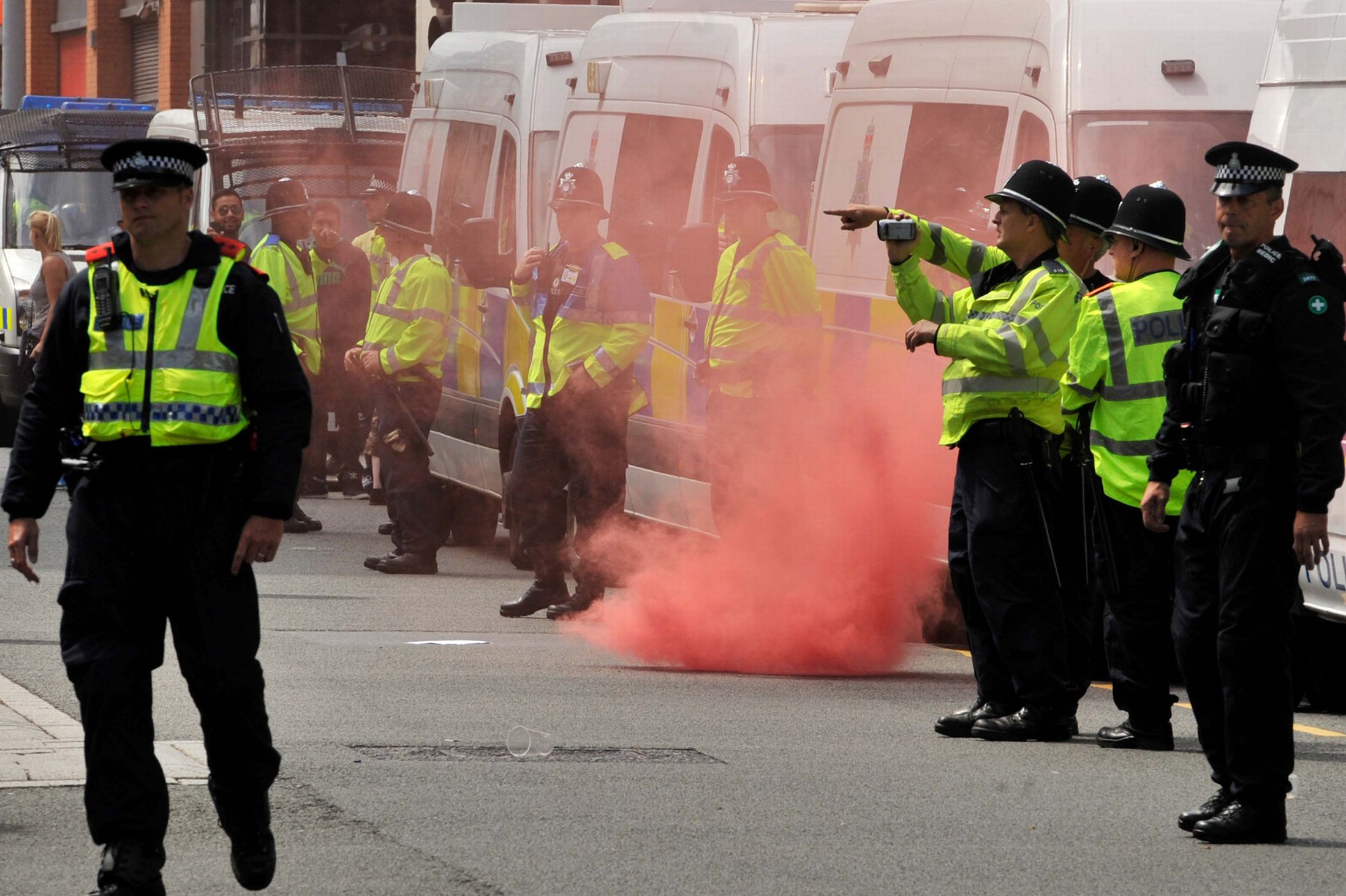 Community leaders in Birmingham are urging the city’s ten MPs to put pressure on Government to tighten up the laws on static protests following an English Defence League (EDL) rally in the heart of the city.
Community leaders in Birmingham are urging the city’s ten MPs to put pressure on Government to tighten up the laws on static protests following an English Defence League (EDL) rally in the heart of the city.
The protest was held last Saturday in Centenary Square, while a counter demonstration from the United Against Fascism (UAF) group took place a few hundred yards away in Chamberlain Square. To further complicate matters, more than 2,000 young Christians, including many African Caribbeans, were taking part in a three-day international convention at nearby Symphony Hall.
The day passed with no serious injuries, although one police officer was treated in hospital after being hit by a brick. Around 20 arrests were made and officers from West Midlands Police are still scouring “exceptional quality” CCTV footage with the aim of bringing more offenders to justice for public order offences.
Community leaders had met with police before the event urging them to postpone the rally, fearing that young people attending the Christian conference would be physically or verbally abused. But they were told neither police of Birmingham City Council had the power to stop what is known as a “static protest” from going ahead.
Desmond Jaddoo, of Birmingham Empowerment Forum has now written to all ten MPs calling for a tightening up of the law. Those he has written to include Khalid Mahmood, Gisela Stuart, John Hemming, Jack Dromey, Richard Burden and Steve McCabe. Councillor Bob Jones, the West Midlands Police and Crime Commissioner has also written to Home Secretary Theresa May.
Jaddoo said: “We need to have answers to several questions including what is a static protest? How much mobility is allowed before it is no longer a static protest? Since racial discrimination is a hate crime, should protests like this be allowed? And finally if there is a clear risk to public safety, then should the protest not be postponed?
“What I saw of the protest was neither static nor peaceful as many of the 2,000 people taking part in the EDL rally broke away and started fighting police with bricks and bottles as soon as they entered Centenary Square. The young people at the Christian conference were not allowed to have a picnic in the nearby Peace Park because the police couldn’t guarantee their safety, so they were stranded indoors.”
Meanwhile veteran civil rights activist Maxie Hayles, founder of BRAMU – Birmingham’s Racial Attack Monitoring Unit, who attended the UAF protest said he found the experience ‘horrific’.
“We were kettled by the police and trapped in Chamberlain Square,” said Hayes, who spoke at the UAF event. “People who wanted to leave weren’t able to and that produced fear and panic. I had to comfort quite a few people who were clearly scared. The UAF protesters were anti-racist, yet they were the ones being treated like criminals.”
But West Midlands Police have defended their actions. A spokesperson said: “Officers stopped some protesters from leaving the demonstration sites in order to prevent a breach of the peace. As soon as it was safe to allow everyone to disperse, police cordons were released”.
Assistant Chief Constable Sharon Rowe, who was the commander in charge of the police operation, said: “This was a successful operation, due in no small part to the excellent work between police, our partner agencies and representatives of our communities. A great deal of time, effort and thought went into the events and it was reassuring to see both demonstrations largely passed off without serious incident.”
As we never cease to point out, while a static demonstration can’t be banned outright, the police already have powers under Section 14 of the Public Order Act to impose restrictions on such a protest. If the demonstration can be expected to cause “serious disruption to the life of the community” or if “the purpose of the persons organising it is the intimidation of others”, then the police can give instructions to the organisers as to “the place at which the assembly may be … held”.
When the EDL attempted to hold a demonstration in the centre of Walthamstow last year the police imposed a Section 14 ban, and forced the EDL to hold their protest miles away in Westminster. West Midlands Police could easily have imposed a similar ban on the EDL and ordered them to hold their protest well away from the centre of Birmingham.
Instead, West Midlands Police went out of their way to assist the EDL in holding their demonstration in the centre of Birmingham, despite its intimidatory character and the disruption it would cause to the life of the community. They even went so far as to put pressure on city centre bar to host the EDL, after the management initially refused to cooperate.
Rather than pushing for a change in the law, local activists would be better advised to demand of the police and the home office that if the EDL attempt to hold a demonstration in the centre of Birmingham in future the police will use their existing powers to protect the communityagainst this mob of racist thugs.
